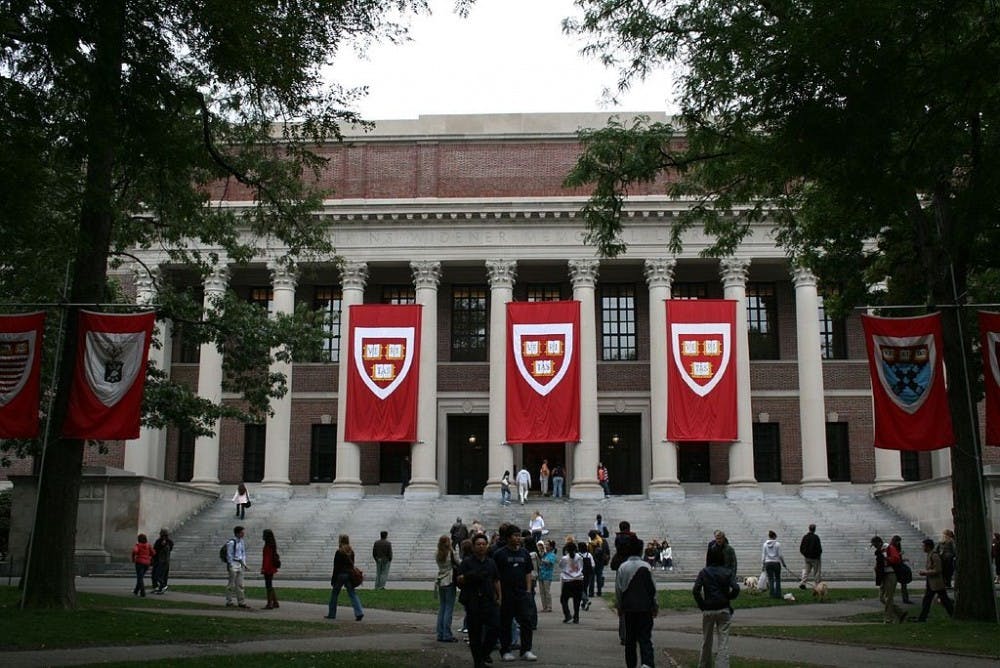A recent study found that between 2009 and 2014, nearly half of caucasian students admitted to Harvard University were either athletes, legacy, or children of faculty and donors.
Researchers from Duke University, University of Georgia, and University of Oklahoma, found that 43% of Harvard's white admits had one of these admissions advantages. The study, published on Sept. 11, concluded that only one-quarter of these students would have received admission had it not been for their advantageous circumstances.
Approximately 27% were either legacy, children of faculty, or members of the dean’s interest list, which is composed of students whose parents have made a significant donation in the past or are likely to in the future. The remaining 16% of admitted students is made up of athletes.
In comparison, Penn’s admission statistics for the Class of 2023 report that 13% of admitted students this year have either a parent or grandparent who attended the university. Additionally, studies have shown that preferential admission for legacy students disproportionately benefits white applicants.
A study conducted by The Washington Post found that 9% of Penn students are athletes. In another study related to admissions, researchers found that athletes with an identical academic record to a non-athlete are 30% more likely to receive admission.
White legacy students and athletes — particularly those who are wealthy – have a significant advantage in admissions at Harvard, with admissions rates of 34% and 87% respectively, in comparison to 4.89% for the average applicant.
According to The Harvard Crimson, 43.2% of legacy students and 20% of athletes in Harvard’s Class of 2019 come from households that earn more than $500,000 a year, compared to just 15.4% of the overall class.
Harvard President Lawrence Bacow said that many of the legacy students applying to the university would be in the most desirable applicant pool regardless of their status.
RELATED:
'You don’t have time for it' — why Penn Admissions doesn't fact-check most applications
Penn received 44,960 applications for the Class of 2023 — the largest pool to date
“Their applications tend to be well put-together," Bacow told NPR. "They have deep knowledge of the institution. So it's a self-selected pool, which, as a group, by almost any metric, looks very, very good relative to the broader applicant pool.”









